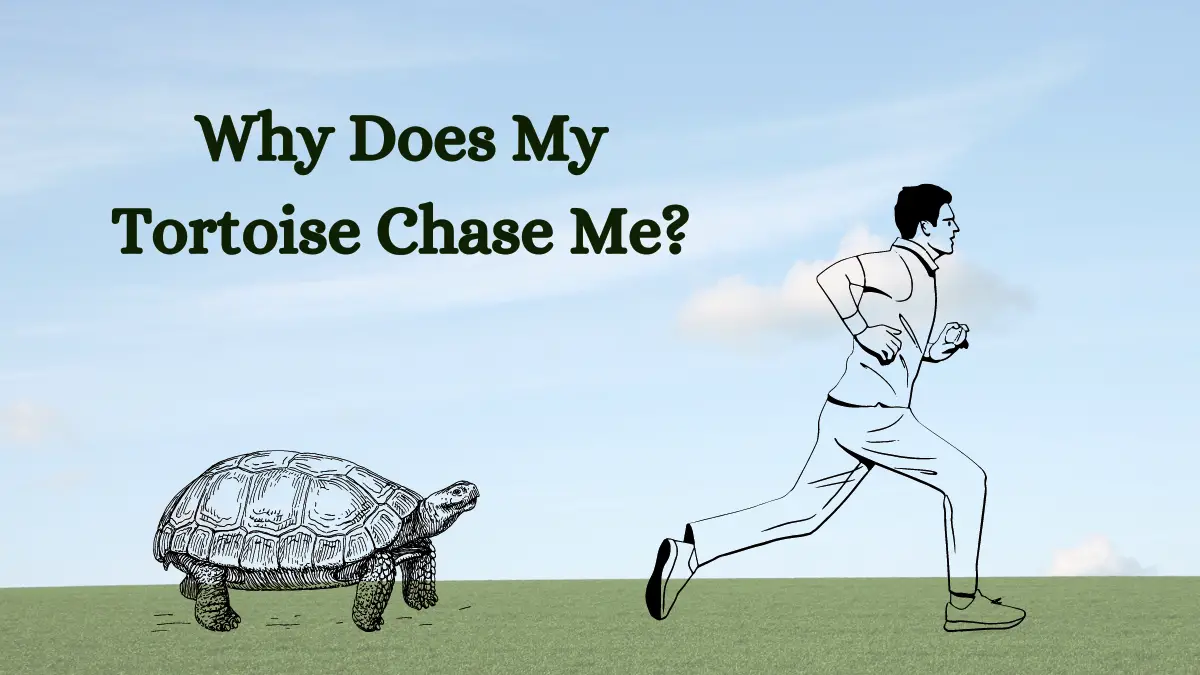Why Does My Tortoise Chase Me? Cracking the Shell of this Behavior
Tortoises are known to be slow and steady in their ways. They bring charm to your home, which other pets can’t. But some of their behaviors might leave you scratching your head.
For instance, why does my tortoise chase me? Well, there are several reasons for this behavior. First, this chase might not be an actual chase but a heartfelt attempt at interaction. Also, tortoises are territorial animals. Chasing you might be a way of marking their territory, even if your house isn’t the wild.
In this article, we will dive deep into the psychology of this behavior. We will tell you what triggers this instinct, how to act, and more.
Why Does My Tortoise Chase Me? Here are the Answers
Contents
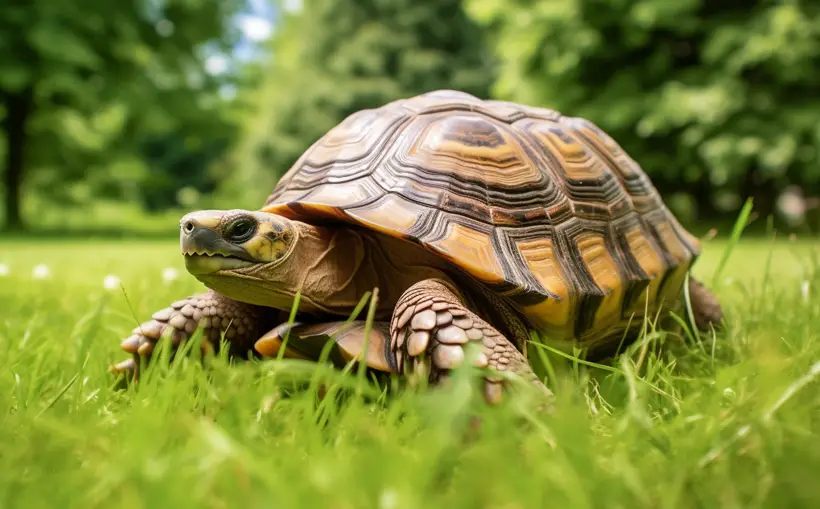
Below are the reasons why your shelled friend is chasing you:
1. Curiosity
These slow creatures might seem to be boring. However, this is not the case. They are playful and curious explorers. They want to know their surroundings, movement and even scent.
Chasing, thus, becomes their method of investigating things. You can know that their chase is about curiosity by observing if they stop to investigate things.
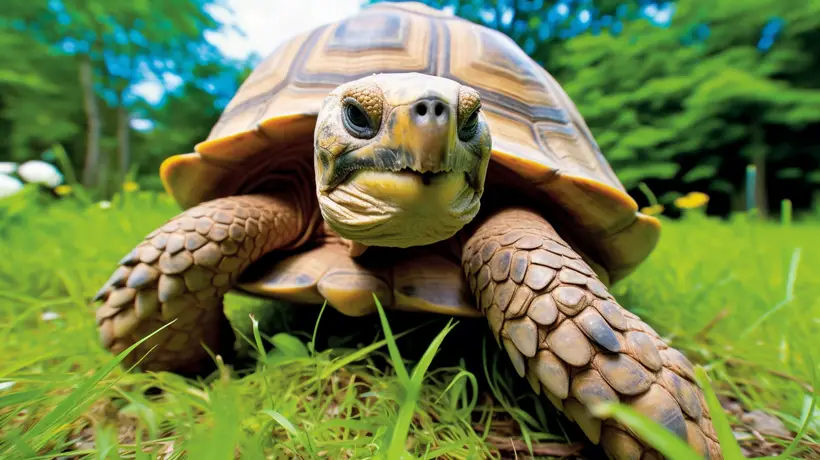
2. Desire for Interaction
While you and your tortoise do not speak the same language, they can reach out to you. One way they do so is through chasing. It could be a “let’s hang out” sign when they chase you. Yes, tortoises are not as shy as you think, they love interacting with their caretakers.
You can tell they are yearning for interaction by watching for other signs of interest. If they approach you immediately after you enter the room, they sure miss you.
You can also tell by paying close attention to their body language during the chase. Are they moving with purpose or just walking along? If they are moving on purpose and have their heads up, it’s a positive sign.
3. Territorial Behavior
Tortoises are highly territorial. While these creatures might not be fending off predators and competitors in your living room, their nature persists. Observe their reaction when you enter their space to spot a chase triggered by their territorial behavior.
If they exhibit a change of behavior, you are intruding. This change of behavior includes hesitance to explore by directly chasing you. They will chase you, keeping their distance.
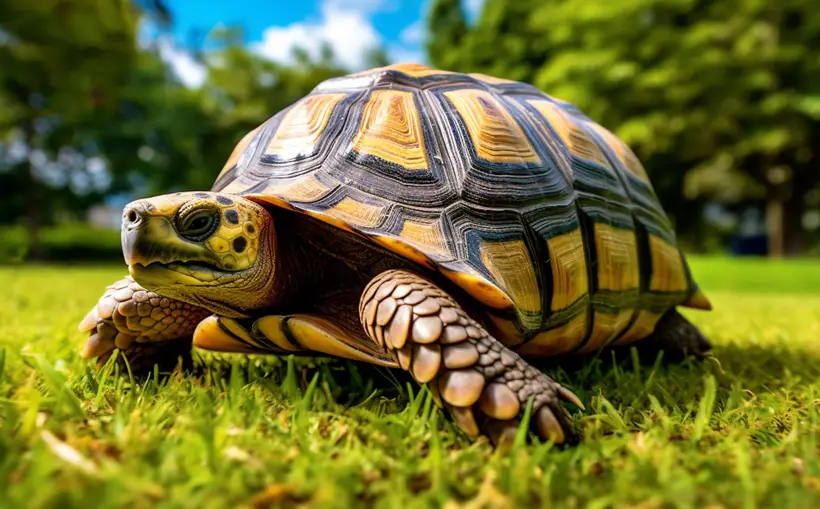
4. Response to Sensory Stimuli
Tortoises also have sensations. Chasing after you might not be a coincidence but a response to intriguing sensory stimuli. It is if they initiate the chase when you make sudden movements. Once you stop making the movements, they will stop chasing you.
5. Agitation or Stress
Just like any other living being, tortoises can experience agitation and stress due to various factors.
These two stem from changes in their habitat, disruptions of their routine, and the presence of unfamiliar animals or people. They could also get stressed due to loud noises, sudden movements, temperature fluctuations, etc.
They pick up these changes and reflect them with their behavior as sensitive creatures. You can tell if their chase is a result of stress and agitation by watching for signs of unease. These include retreating to their shell more often than usual and being extremely restless.
Also, during the chase, they will move with a sense of urgency and with their heads low. The chasing will also be accompanied by erratic movements. These signify their heightened anxiety.
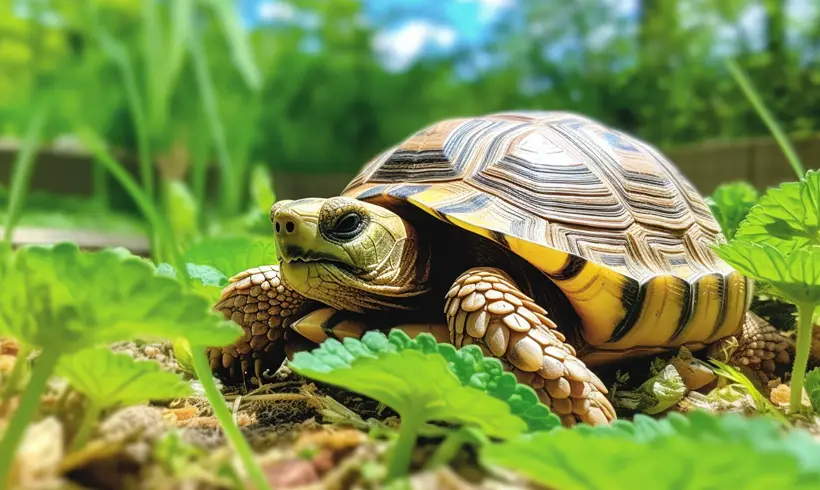
Below are some essential dos and don’ts that will help you sail through the chasing behavior:
Dos:
- Observe and learn: Wait for cues when your tortoise chases you. Know how they are acting, what is happening around them and their pace. This will help you figure out why they are chasing you.
- Provide interaction: When you notice your pet is chasing you out of curiosity, pet them. While petting them, pretend like you are talking with them.
- Create a calm environment: Avoid sudden loud noises. Keeping them in a familiar territory that is peaceful helps them feel safe.
Don’ts
- Overreact: When your pet starts to chase you, don’t react. Chances are that they are not meant to chase you. And if you panic, you will make things worse.
- Punish: Stay away from doing things that will make your tortoise worried. Never be mean to them just for chasing. It will even make them scared and break the chances of ever bonding.
- Disrupt their routines: Tortoises like their schedules. Big changes will make them worried and want to chase more. Stick to a routine so they know what to expect each hour of the day.
FAQs
Here are answers to questions that will come up as you read this write-up:
No. This is a harmless expression of its instincts. It is part of tortoise’s natural repertoire. If you notice the chasing is because of negative things like stress, you should focus on eliminating the stress.
Tortoises have moods. Sometimes, they will be more interested in exploring. Others will be interested in just taking it easy. Hence, chasing will vary with their mood, their environment, and overall health.
No. Tortoises do not respond to training like dogs. However, you can shape their behavior through positive interactions. If you do not want them to chase you, keep them busy. Redirect their attention to things like food, treats, and toys.
Conclusion
The above information puts to bed the question, why does my tortoise chase me? Your slow friend might be chasing after you for various reasons. These include positive ones like curiosity and desire for connection. They will also chase you for negative reasons like territorial behavior, stress, and agitation.
Understanding the motives behind these chases offers you a glimpse into their unspoken language. You can tell whether it’s negative or positive by paying close attention to their subtle cues.

